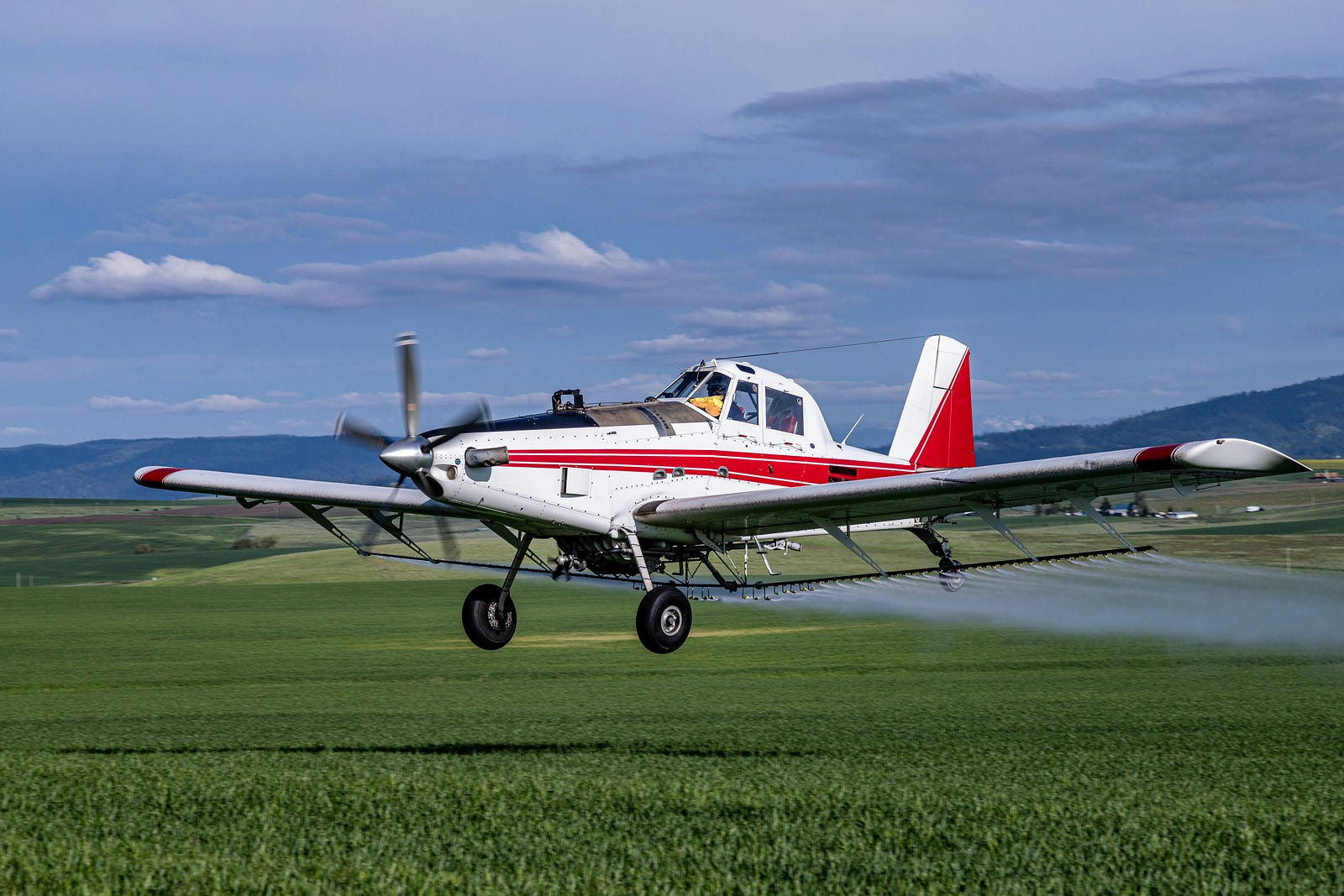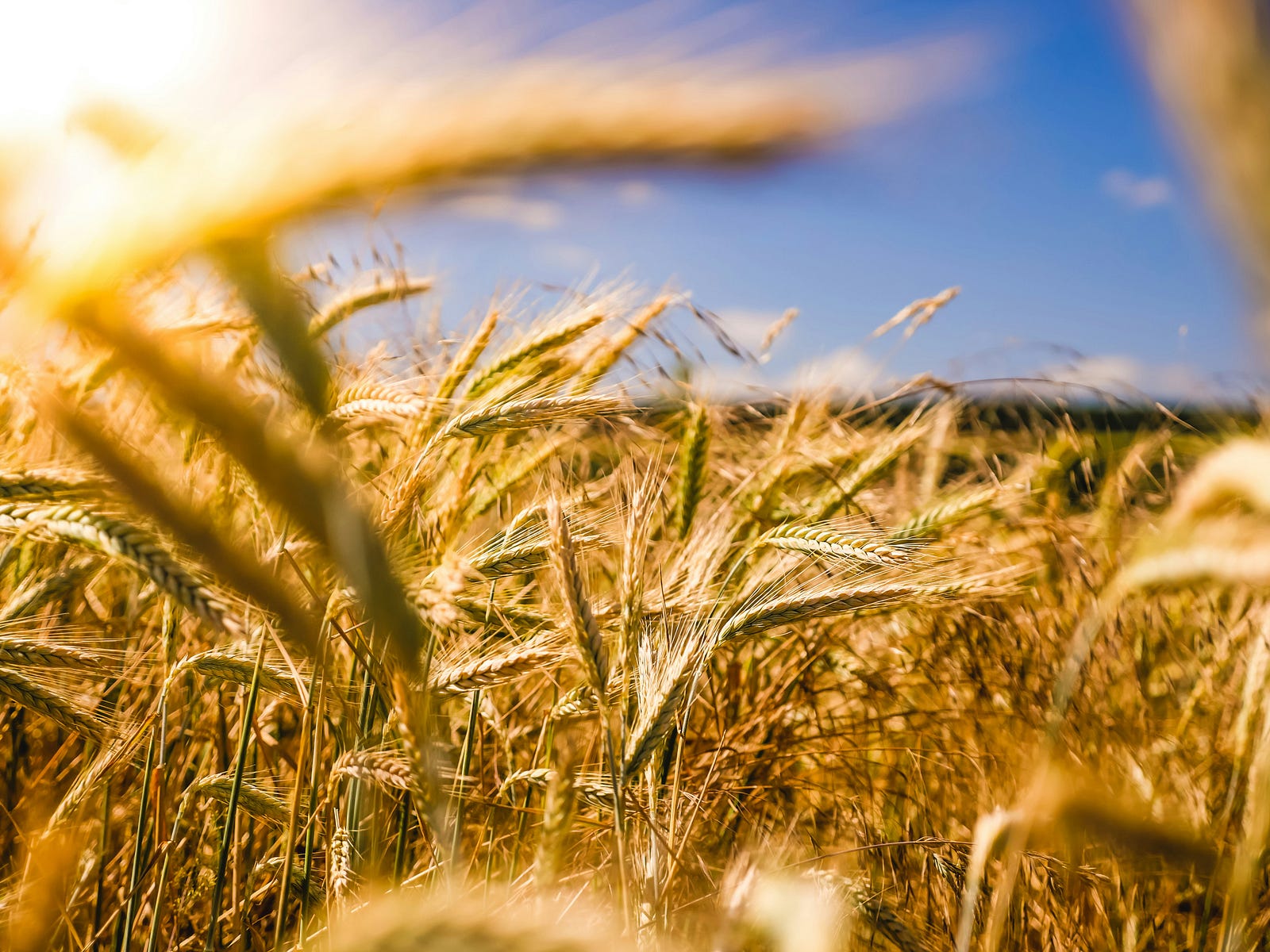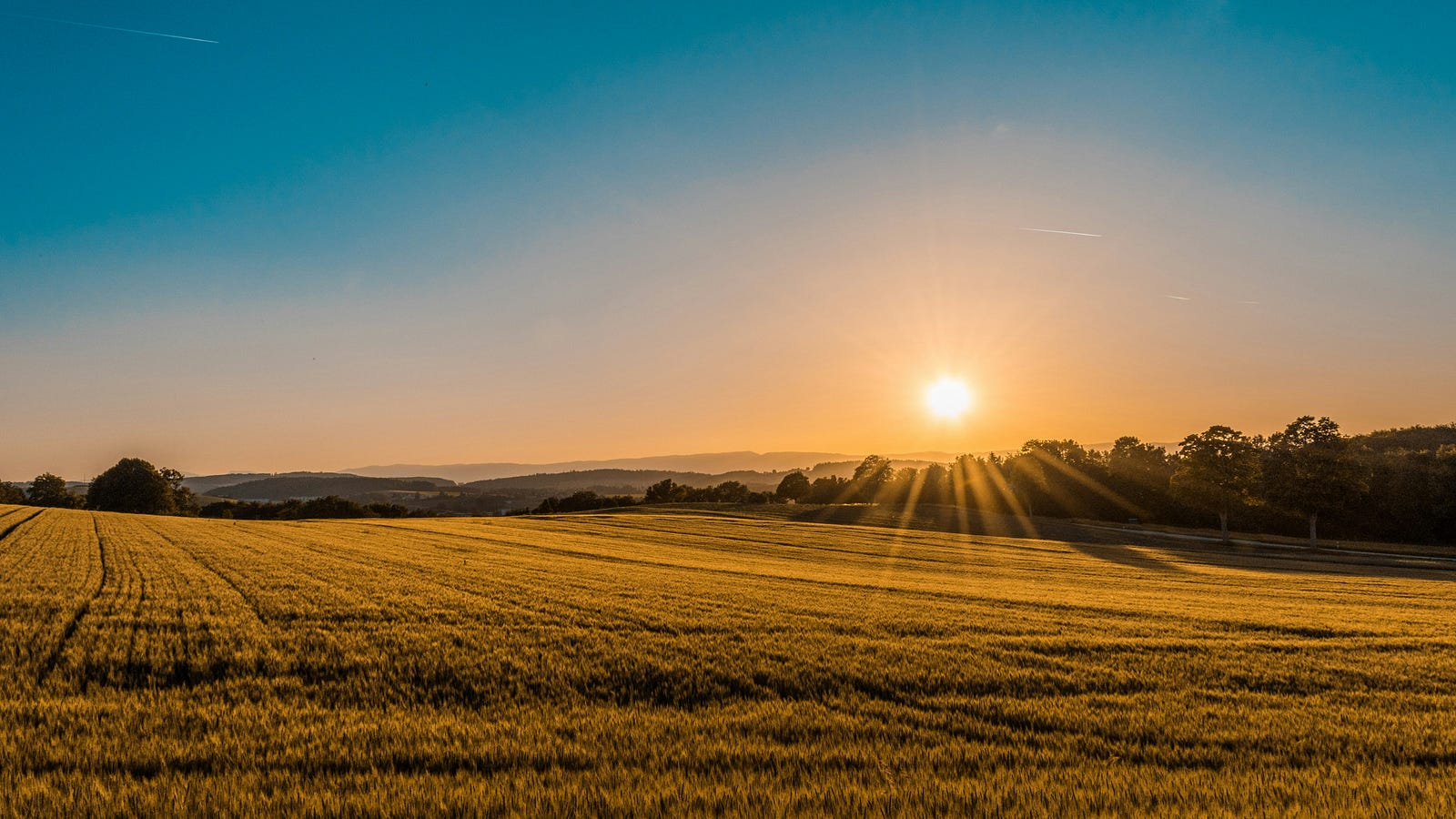Pesticides and Cancer.
I am a cancer doctor.
But I would love to see fewer people with cancer.
You can imagine my interest in a new, groundbreaking study that has unveiled a startling revelation:
In areas near agricultural production, the risk of developing cancer due to pesticide exposure is on par with the well-known dangers of smoking.
This alarming discovery, which we will explore in detail throughout this essay, challenges our understanding of environmental health and raises critical questions about the safety of our food production systems.
Pesticides in the United States
Pesticide use is pervasive in American agriculture and critical in maintaining crop yields.
In 2021 alone, farmers applied herbicides to 96 percent of the nation’s 93.4 million acres of corn.
I knew we use a lot of chemicals in agriculture, but the number still shocked me.
Study Highlights — Pesticides and Cancer
The new study aimed to understand how agricultural pesticide use patterns affect cancer rates across the U.S.
Researchers used county-level data on pesticide use, cancer cases, and other factors like smoking, social vulnerability, agricultural land use, and population.
They linked all these datasets based on county codes and then created groups of counties with similar pesticide use patterns.

Next, the study authors analyzed how these patterns and other factors impacted cancer rates.
This type of large-scale study doesn’t capture every possible influence on cancer, something they acknowledge.
Their primary goal was to identify broad trends between pesticide use and cancer incidence in different regions, not to pinpoint individual risks or say pesticides directly cause cancer.
More Study Details
The researchers worked under the assumption that more pesticide use generally leads to higher cancer rates, as there’s no evidence to support the opposite.
However, it’s worth considering that even smaller amounts of pesticides in densely populated areas could have a bigger impact since more people are exposed to them.
By analyzing local records nationwide, the researchers created the first-ever national map illustrating the geographical distribution of cancer risks associated with pesticide exposure.

Here’s the thing: Historical studies on the link between pesticides and cancer have mainly focused on specific groups, such as farmers and their families.
This study is the first to examine how pesticides affect the health of entire communities nationwide.
Study Results: Pesticides and Cancer Risk
This study examined a widely used pesticide, glyphosate, commonly known as Roundup.
Glyphosate’s potential link to lymphoma, a type of cancer, has been a subject of debate, with some studies suggesting a connection.
The International Agency for Research on Cancer even classifies glyphosate as a probable carcinogen, and lawsuits claiming harm from its use have led to significant financial settlements.
However, a major study by the U.S. National Institutes of Health focused on farmers and their spouses did not find a link between glyphosate and cancer.
The current study, in contrast, found that frequent use of Glyphosate was associated with an increased risk of all cancers, including colon and pancreatic cancer.
These conflicting findings highlight the ongoing complexity and controversy surrounding the safety of this commonly used pesticide.
Other Pesticides and Cancer Risk
In addition to glyphosate, the study found links between other pesticides and cancer.
- Frequent use of Imazethapyr was associated with an increased risk of all cancers, colon cancer, and lung cancer.
- Metolachlor, Metolachlor-S, and their combination were all linked to a higher risk of all cancers, colon cancer, and pancreatic cancer.
- Researchers linked frequent use of Atrazine to a higher risk of all cancers and colon cancer.
- Areas with heavy use of Boscalid had higher rates of leukemia, non-Hodgkin’s lymphoma, and pancreatic cancer.
- Dimethomorph use was associated with an increased risk of leukemia and non-Hodgkin’s lymphoma.
- Dicamba was commonly used in areas with higher rates of colon and pancreatic cancer, and Dinotefuran was linked to higher rates of leukemia and non-Hodgkin’s lymphoma.

Interestingly, the study found that Dimethenamid alone was only associated with a slightly increased risk of bladder cancer.
However, when used in combination with Dimethenamid-P, the risk of pancreatic cancer was significantly higher.
My Thoughts – Pesticides and Cancer
The study highlights that while individual pesticides can be harmful, using them together can significantly increase cancer risk.
The interaction of different chemicals in agricultural environments creates a complex situation where the combined effect exceeds the sum of individual risks.
This discovery emphasizes the importance of understanding how pesticides interact and their cumulative impact on our health.
While pesticides are crucial for food production, we must also consider the potential harm they pose.
These issues create a challenging situation where we must balance producing enough food and protecting public health.
Achieving this balance will require more research and careful decision-making to ensure agricultural productivity and human well-being.
Study Limitations – Pesticides and Cancer
The study offers important insights into the relationship between pesticide use and cancer rates in the U.S., but it’s important to acknowledge its limitations.
- The data had flaws. For example, some counties had missing or incomplete data due to small populations or low cancer rates. Also, the researchers couldn’t link pesticide exposure directly to individual cancer cases because our data looked at the overall picture for each county.

- Second, counties vary greatly in size and population, which could affect the results. Additionally, they didn’t account for groups like seasonal and migrant farmworkers who might have high pesticide exposure but move around a lot.
- Third, our study didn’t include melanoma, a skin cancer closely tied to sun exposure and skin color, which are complex factors to model.
- Also, the researchers could not verify their findings with other independent studies because similar data is not publicly available.
All these limitations mean we must be cautious about the study findings, but they align with what other studies have discovered.
What You Can Do
Pesticides are widely used to expose us to food, water, and air.
Here are three ways to reduce your exposure to food contamination:
- Thoroughly wash produce: Scrubbing fruits and vegetables under running water helps remove dirt, bacteria, and some pesticide residue.
- Peel and trim when possible: Peeling fruits and vegetables and discarding outer leaves can further reduce pesticide residues. Trimming fat from meat and skin from poultry and fish also helps, as some pesticides accumulate in fat.
- Eat a varied diet: Consuming various foods from different sources ensures a balanced nutritional intake and minimizes the risk of overexposure to a single pesticide.
Remember, while these steps can help reduce pesticide exposure, they may not eliminate it.
Conflicts of interest
Researchers conducted the study without commercial or financial relationships that could create a conflict of interest.
Frontiers | Comprehensive assessment of pesticide use patterns and increased cancer risk
www.frontiersin.org.
Thank you for reading “Pesticides and Cancer: What This Oncologist Thinks You Should Know.”




